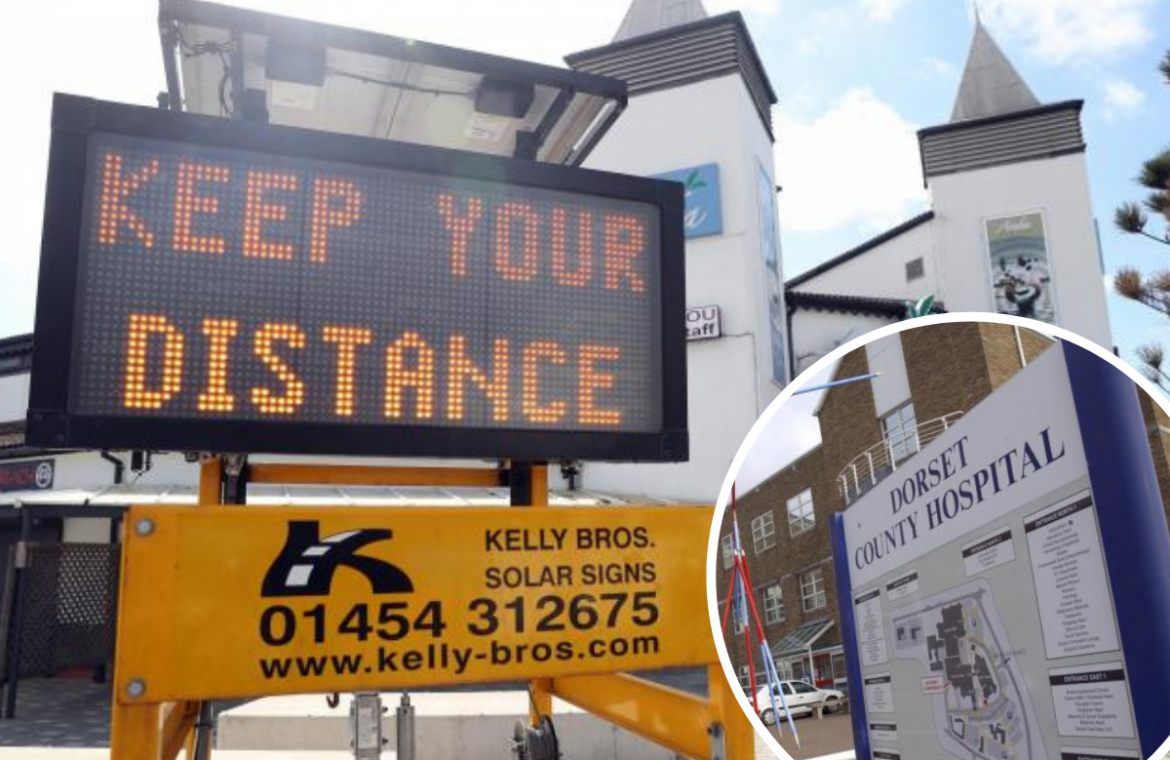DORSET Council presented the latest Covid-19 update in Dorset in an online question-and-answer session with residents.
Discussion was chaired by Dorset Public Health Director Sam Crowe and Dorset Council CEO Matt Prosser.
During the meeting, which focused on Dorset rather than BCP specifically, both Mr. Crowe and Mr. Prosser provided updates on the coronavirus situation in Dorset and Sam answered questions from residents.
At the start of the meeting, Mr. Crowe explained how there was a spike in coronavirus cases at the start of October, which is believed to be a combination of cold weather, higher infection rates and the return of schools and colleges.
Despite this increase, the Dorset Council remains at the first level within a three-tiered framework.
“I am pleased to say that after seeing this sharp spike in the first two weeks of October, the infection appears to be stabilizing. We are in a reasonable place,” Crowe said.
The increase in recent weeks is thought to be due to intra-family transmission, a major pattern in Dorset Council areas.
The levels topic is discussed later thanks to a resident question.
The evaluator asked: “If we move to a higher level, how will that work and how is the decision made? Will it be Dorset overall or a separate position of Dorset versus BCP?”
In response, Crowe explained in detail how if Dorset were to move to a higher level, any decision would be made to discuss with the government.
He also mentioned the Health Protection Board that operates in the Dorset Board and BCP areas.
This forum comes together regularly to showcase the Covid-19 data that is discussed next.
“If cases continue to rise, we will work with the local outbreak board to consider whether a move to a higher level is necessary. It will be important that this be an informed decision and not something that is required or mandated at a very short notice,” Crowe said.
If the status rates are very different between the two board areas, it is possible to see the BCP and the Dorset board at different alert levels.
“The impression I have is that the government is looking for consistency, realizing that a lot of people live in one area and travel to work in another area. If we see a rise not only in Dorset Council but in other councils in the southwest, then we might look at a regional debate about it,” Crowe added. Move to the second level. ”
The last question of the night popped up whether the Dorset Council offers local testing and tracing.
According to Mr. Crowe, there has been a lot of discussion with the regional health protection team about this issue and it has been decided, for the time being, not to conduct local testing and tracing.
“This is because we work closely with the Regional Health Protection team to monitor high-risk situations like care homes, and that works really well,” said Mr. Crowe.
The current completion rates in the Dorset Council area for monitoring positive cases are over 70 per cent and the completion rate for contact follow-up for those cases is also about 70 per cent.
This also includes 15 percent in both categories that are still regulated.
“It is important not to duplicate or confuse what is happening with the National Testing and Tracking Service. At the moment, we do not conduct local testing and tracing, but we do have this discussion regularly if things change,” added Mr. Crowe.





